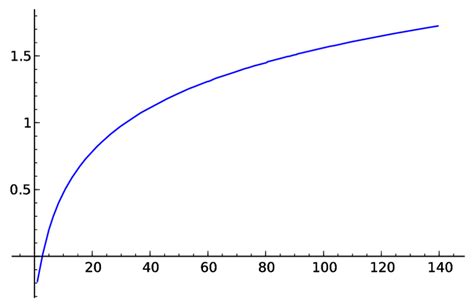Broad vs Narrow specialisation
In my opinion good overview of the topic is done by this talented Java developer: skipy.ru (in short, the better is narrow specialist, but when works in the team)
However I have different view, the conclusion is not so obvious.
Indeed, we have to spare time from secondary activities to have ability to spend time on one subject and go deeper within it. When we have been working on the subject for a long time we are getting specialisation in it that gives us ability to take tasks that are available only for 20% of people. If we spend a whole life on this subject then we are able to take tasks available only for 2% of people. (numbers are nominal, just shared to give sense of scale).
Society need this people and we are all interested in each of us to specialize in one subject or field. However, it works well when community/society/system grows stably -- when each specialisation is closed by someone and goods/services exchange system has been created and tuned.
There is at least two issues. In the ideal society we don't need people-biorobots, 'people of one button' (in which direction we have been pushed), we need harmoniously developed people which assumes to have wide area of thought. The second issue the system is not always grows stably -- I still remember stories from my childhood when theoretical physicists went to trade on the street market (USSR crash), -- we should be prepared for this and be able to adjust own growth under challenges of the environment.
Often our growth in one field doesn't go by exponent or even linearly, but by logarithm

It means the growth of the amount of knowledge and skills decreases with time. However, sometimes, exactly this difference has critical meaning -- imagine the case, when the good surgeon is not enough for you, but you need the best one. One more argument for the narrow specialization is the amount of information and knowledge grow exponentially which brings more work to narrow specialists and everyone else. Seems in such conditions we don't have another way except continue narrow down our specialization, but it is not that simple.
There is such term as 'transferable skills'. Part of this skills you gained during work on one specialization can be applied during work on another specialisation that boost growth to obtain a new one. For the level 'the best' you still have to spent time nearly equal to a whole life, but for the level 'good' it will take much less time. Besides cross-field knowledge gives synergetic effect boosting work on both fields and even bring you to discoveries. Also it helps to connect dots on how world really works that helps to do your work better and sometimes brings not comfortable questions to people at the head of governing structures. From my experience the serious drawback is inflation of knowledge and skills makes support of all specialisations on the proper level an issue.
What is the conclusion?
I see a right way to grow by respond on challenges that life broughts to us. We have to work deep in one direction as well as look at others fields and go deeper in new direction when it would be necessary, we have to develop fundamental basis that gives us an ability to grow in a such way (classic education (russian), Stalin's school)(*) 'a right way' was used here intentionally as this thoughts do not finalize the discussion, but leave it open for future.
[1] On professionalism by Skipy
[2] Did training Bell executives in humanities subjects lower their interest in working?
[3] Looking for a dollar sign: social network as a bank with 500 millions dollars deposit
[4] https://youtu.be/QHNNjDs2rGc?t=253
[5] Classic education